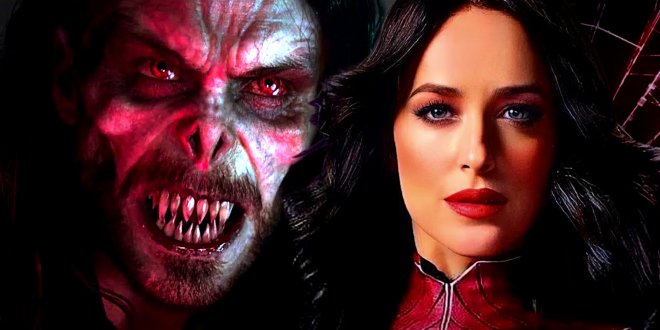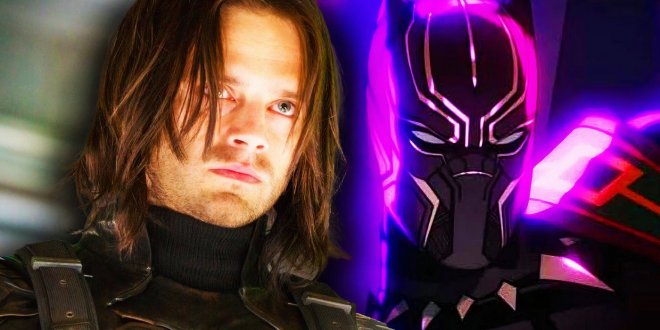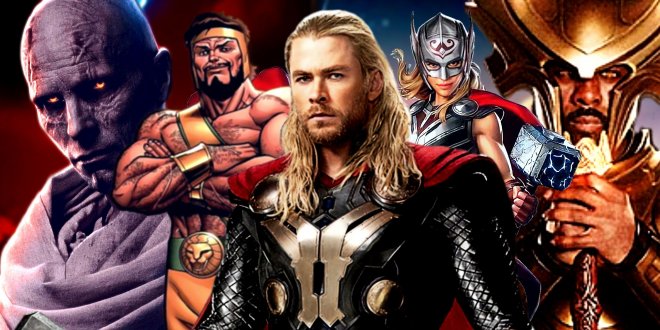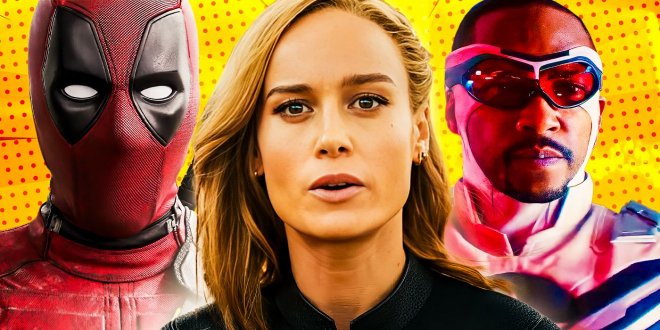Iron Man"s Original Casting Plan Prove You Shouldn"t Worry About Phase 5 Casting Issues
Summary
Recently, MCU recasts and reconfigurations have been relatively common, with Kang the Conqueror actor Jonathan Majors being the most high-profile example. Upcoming movies like Thunderbolts, however, have also hit roadblocks, with the presumed inclusion of Steven Yeun’s Sentry being curtailed by Yeun's departure. These notable casting alterations have led to some concerns regarding the franchise's future - but Iron Man’s own casting journey should help to assuage any concerns raised by recent events.
Reports now suggest that Yeun has been replaced by Top Gun Maverick star, Lewis Pullman, in the role of Sentry.
![]() Related 10 Risky MCU Casting Decisions That Completely Paid Off The MCU has introduced audiences to dozens of talented actors, but a few of these casting decisions were huge risks for Marvel to make. Robert Downey Jr. Wasn't The MCU's Original Iron Man Casting
Related 10 Risky MCU Casting Decisions That Completely Paid Off The MCU has introduced audiences to dozens of talented actors, but a few of these casting decisions were huge risks for Marvel to make. Robert Downey Jr. Wasn't The MCU's Original Iron Man Casting ![]() Despite being one of the most iconic Marvel castings, Robert Downey Jr wasn’t always slated for the role of Tony Stark. The original MCU Iron Man pick was Clive Owen, who is most well known for his roles as Theo Faron in Children of Men and Dwight in Sin City, both notably much darker films than Iron Man. While Clive Owen is a terrific actor in his own right (and Favreau and Feige's top pick), it’s safe to say that his rejection of the role led to the best possible outcome.
Despite being one of the most iconic Marvel castings, Robert Downey Jr wasn’t always slated for the role of Tony Stark. The original MCU Iron Man pick was Clive Owen, who is most well known for his roles as Theo Faron in Children of Men and Dwight in Sin City, both notably much darker films than Iron Man. While Clive Owen is a terrific actor in his own right (and Favreau and Feige's top pick), it’s safe to say that his rejection of the role led to the best possible outcome.
Robert Downey Jr's career was hardly in its early stages when he took on the role of Iron Man, but his tenure as Tony Stark was pretty career-defining. The MCU is now synonymous with his portrayal of the genius hero, with his death at the end of Avengers: Endgame barely having time to sink in before fans began clamoring for his return through some multiversal shenanigans. Although Owen would undoubtedly have brought another dimension to the role, this near-miss should be a big sign that cast alterations aren’t always bad omens.
How MCU's Iron Man Casting Shows Phase 5's Recasts Will Be Just Fine![]() Robert Downey Jr's last-minute arrival to the MCU came to define an era, and would never have been possible without some casting alterations along the way. This goes to show that the brains behind Marvel's casting decisions, while not infallible, are pretty trustworthy when it comes to finding the right fit, even with second choices. This means that recasting for roles like Sentry and Kang should be viewed with an air of excitement instead of anxiety.
Robert Downey Jr's last-minute arrival to the MCU came to define an era, and would never have been possible without some casting alterations along the way. This goes to show that the brains behind Marvel's casting decisions, while not infallible, are pretty trustworthy when it comes to finding the right fit, even with second choices. This means that recasting for roles like Sentry and Kang should be viewed with an air of excitement instead of anxiety.
Fan casting has already been rife for these roles, raising plenty of viable possibilities for the future of the MCU. The best part is that, even though Kang has been introduced already, the nature of the multiverse and its countless variants of beloved characters is ready-made to facilitate new faces. Similarly, the nature of Thunderbolts introducing new character means that (outside established characters like Yelena and Red Guardian) the possibilities are still currently limitless, and hope lingers for a decision like the one to cast Robert Downey Jr.
[圖擷取自網路,如有疑問請私訊]
- Iron Man's original cast plan involving Clive Owen, not Robert Downey Jr, proves MCU casting changes can lead to iconic performances.
- Recent MCU cast changes are a chance for the MCU to display their willingness to adjust with upcoming projects like Thunderbolts.
- Marvel's casting decisions for Phase 5 - despite setbacks like Steven Yeun's departure - are still promising, as they can replicate the likes of Robert Downey Jr's career-defining Iron Man role.
Recently, MCU recasts and reconfigurations have been relatively common, with Kang the Conqueror actor Jonathan Majors being the most high-profile example. Upcoming movies like Thunderbolts, however, have also hit roadblocks, with the presumed inclusion of Steven Yeun’s Sentry being curtailed by Yeun's departure. These notable casting alterations have led to some concerns regarding the franchise's future - but Iron Man’s own casting journey should help to assuage any concerns raised by recent events.
Reports now suggest that Yeun has been replaced by Top Gun Maverick star, Lewis Pullman, in the role of Sentry.
 Related 10 Risky MCU Casting Decisions That Completely Paid Off The MCU has introduced audiences to dozens of talented actors, but a few of these casting decisions were huge risks for Marvel to make. Robert Downey Jr. Wasn't The MCU's Original Iron Man Casting
Related 10 Risky MCU Casting Decisions That Completely Paid Off The MCU has introduced audiences to dozens of talented actors, but a few of these casting decisions were huge risks for Marvel to make. Robert Downey Jr. Wasn't The MCU's Original Iron Man Casting  Despite being one of the most iconic Marvel castings, Robert Downey Jr wasn’t always slated for the role of Tony Stark. The original MCU Iron Man pick was Clive Owen, who is most well known for his roles as Theo Faron in Children of Men and Dwight in Sin City, both notably much darker films than Iron Man. While Clive Owen is a terrific actor in his own right (and Favreau and Feige's top pick), it’s safe to say that his rejection of the role led to the best possible outcome.
Despite being one of the most iconic Marvel castings, Robert Downey Jr wasn’t always slated for the role of Tony Stark. The original MCU Iron Man pick was Clive Owen, who is most well known for his roles as Theo Faron in Children of Men and Dwight in Sin City, both notably much darker films than Iron Man. While Clive Owen is a terrific actor in his own right (and Favreau and Feige's top pick), it’s safe to say that his rejection of the role led to the best possible outcome.Robert Downey Jr's career was hardly in its early stages when he took on the role of Iron Man, but his tenure as Tony Stark was pretty career-defining. The MCU is now synonymous with his portrayal of the genius hero, with his death at the end of Avengers: Endgame barely having time to sink in before fans began clamoring for his return through some multiversal shenanigans. Although Owen would undoubtedly have brought another dimension to the role, this near-miss should be a big sign that cast alterations aren’t always bad omens.
How MCU's Iron Man Casting Shows Phase 5's Recasts Will Be Just Fine
 Robert Downey Jr's last-minute arrival to the MCU came to define an era, and would never have been possible without some casting alterations along the way. This goes to show that the brains behind Marvel's casting decisions, while not infallible, are pretty trustworthy when it comes to finding the right fit, even with second choices. This means that recasting for roles like Sentry and Kang should be viewed with an air of excitement instead of anxiety.
Robert Downey Jr's last-minute arrival to the MCU came to define an era, and would never have been possible without some casting alterations along the way. This goes to show that the brains behind Marvel's casting decisions, while not infallible, are pretty trustworthy when it comes to finding the right fit, even with second choices. This means that recasting for roles like Sentry and Kang should be viewed with an air of excitement instead of anxiety.Fan casting has already been rife for these roles, raising plenty of viable possibilities for the future of the MCU. The best part is that, even though Kang has been introduced already, the nature of the multiverse and its countless variants of beloved characters is ready-made to facilitate new faces. Similarly, the nature of Thunderbolts introducing new character means that (outside established characters like Yelena and Red Guardian) the possibilities are still currently limitless, and hope lingers for a decision like the one to cast Robert Downey Jr.
[圖擷取自網路,如有疑問請私訊]
|
本篇 |
不想錯過? 請追蹤FB專頁! |
| 喜歡這篇嗎?快分享吧! |
相關文章
tag_marvel



















